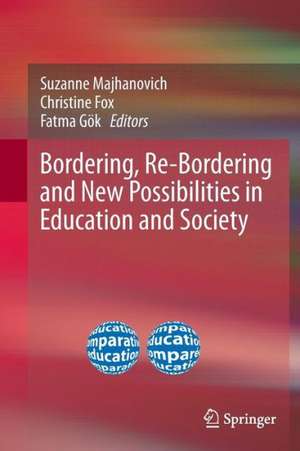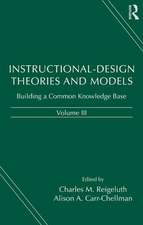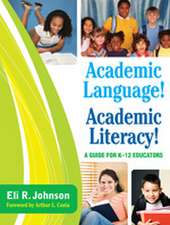Bordering, Re-Bordering and New Possibilities in Education and Society
Editat de Suzanne Majhanovich, Christine Fox, Fatma Göken Limba Engleză Paperback – 9 mai 2014
The papers in this book reflect cutting edge research by top researchers as they grapple with the multi-faceted concerns of bordering and re-bordering in relation to education in the 21st century. The volume includes valuable contributions from key educational theorists, researchers and practitioners from Africa to the Middle East, Europe, Asia-Pacific and the Americas—educators who shared their recent investigations and practice at the triennial World Congress of the WCCES in Istanbul, Turkey. A focus of particular educational concerns in the Arab world creates a context in which to analyse recent events now termed the “Arab Spring.”
This compelling and wide-ranging volume has been facilitated by the WCCES and provides new theory on bordering and re-bordering with comprehensive comparative assessment of educational implications of power politics in the face of the re-ordering, and re-bordering of our globalized world.
| Toate formatele și edițiile | Preț | Express |
|---|---|---|
| Paperback (1) | 558.01 lei 38-44 zile | |
| SPRINGER NETHERLANDS – 9 mai 2014 | 558.01 lei 38-44 zile | |
| Hardback (1) | 634.28 lei 6-8 săpt. | |
| SPRINGER NETHERLANDS – 14 apr 2012 | 634.28 lei 6-8 săpt. |
Preț: 558.01 lei
Preț vechi: 697.52 lei
-20% Nou
Puncte Express: 837
Preț estimativ în valută:
106.79€ • 111.25$ • 88.79£
106.79€ • 111.25$ • 88.79£
Carte tipărită la comandă
Livrare economică 04-10 februarie 25
Preluare comenzi: 021 569.72.76
Specificații
ISBN-13: 9789400799769
ISBN-10: 9400799764
Pagini: 264
Ilustrații: VIII, 256 p.
Dimensiuni: 155 x 235 x 14 mm
Greutate: 0.38 kg
Ediția:2012
Editura: SPRINGER NETHERLANDS
Colecția Springer
Locul publicării:Dordrecht, Netherlands
ISBN-10: 9400799764
Pagini: 264
Ilustrații: VIII, 256 p.
Dimensiuni: 155 x 235 x 14 mm
Greutate: 0.38 kg
Ediția:2012
Editura: SPRINGER NETHERLANDS
Colecția Springer
Locul publicării:Dordrecht, Netherlands
Public țintă
ResearchCuprins
1. Bordering and Re-bordering in Education: Introduction.- 2. “Quality’s ‘Others’?” The Politics of Bordering and Re-bordering our Educational Standards.- 3. The New Spatial Politics of (re)Bordering and (re)Ordering the State-Education-Citizen Relation.- 4. From Barriers to Bridges: An Investigation on Saudi Student Mobility (2006–2009).- 5. Frontières, Traduction et Politiques de la Différence : la Tâche Herméneutique de l’Éducation Comparée.- 6. Self and the Other in the Confucian Cultural Context: Implications of China’s Higher Education Development for Comparative Studies.- 7. Re-bordering Spaces of Trauma: Auto-ethnographic Reflections on the Immigrant and Refugee Experience in an Inner-city High School in Toronto.- 8. Language Learning through Critical Pedagogy in a “Brave New World”.- 9. Colonial Legacy, Women’s Rights and Gender-Educational Inequality in the Arab World with Particular Reference to Egypt and Tunisia.- 10. Women and Higher Education in Iran: What are the Implications for Employment and the “Marriage Market”?.- 11. What Underlies the Shift to a Modality of Partnership in Educational Development Cooperation?.- 12. Tradition, Globalisation and Language Dilemma in Education: African Options for the 21st Century.- 13. Re-bordering Comparative Education in Latin America: Between Global Limits and Local Characteristics.
Textul de pe ultima copertă
In recent times, the world has experienced the shifting and realignment of political, ideological and geographic borders everywhere. The emergence of new nation states alongside the growth of multinational economic unions, mobility and displacement of populations and products has changed the face of educational systems and theories. In the context of globalisation, the concepts of bordering and re-bordering invite us to contemplate the sometimes contradictory image of the state in its responsibilities to civil society while seeking its place in the global market. The effects of bordering and re-bordering have direct impact on education and its governance with ramifications for linguistic, cultural, sociological and philosophical frames of reference.
The papers in this book reflect cutting edge research by top researchers as they grapple with the multi-faceted concerns of bordering and re-bordering in relation to education in the 21st century. The volume includes valuable contributions from key educational theorists, researchers and practitioners from Africa to the Middle East, Europe, Asia-Pacific and the Americas—educators who shared their recent investigations and practice at the triennial World Congress of the WCCES in Istanbul, Turkey. A focus of particular educational concerns in the Arab world creates a context in which to analyse recent events now termed the “Arab Spring.”
This compelling and wide-ranging volume has been facilitated by the WCCES and provides new theory on bordering and re-bordering with comprehensive comparative assessment of educational implications of power politics in the face of the re-ordering, and re-bordering of our globalized world.
The papers in this book reflect cutting edge research by top researchers as they grapple with the multi-faceted concerns of bordering and re-bordering in relation to education in the 21st century. The volume includes valuable contributions from key educational theorists, researchers and practitioners from Africa to the Middle East, Europe, Asia-Pacific and the Americas—educators who shared their recent investigations and practice at the triennial World Congress of the WCCES in Istanbul, Turkey. A focus of particular educational concerns in the Arab world creates a context in which to analyse recent events now termed the “Arab Spring.”
This compelling and wide-ranging volume has been facilitated by the WCCES and provides new theory on bordering and re-bordering with comprehensive comparative assessment of educational implications of power politics in the face of the re-ordering, and re-bordering of our globalized world.
Caracteristici
Provides cutting edge research and new theory on the concerns of bordering and re-bordering in education in the 21st Century Creates a context in which to analyze recent events now termed the “Arab Spring” by focusing on particular educational concerns in the Arab world First comprehensive, comparative assessment of educational implications of power politics in the face of the re-ordering, re-bordering of our globalised world













